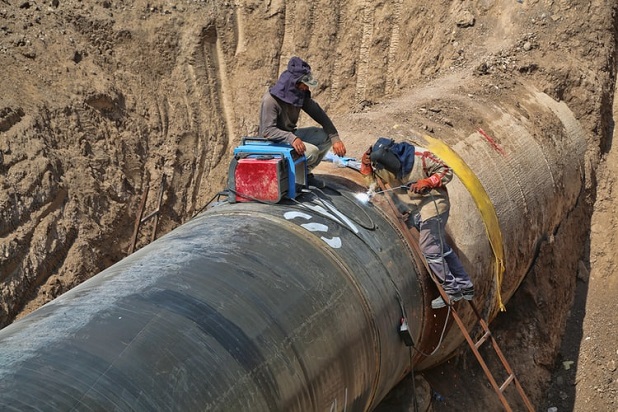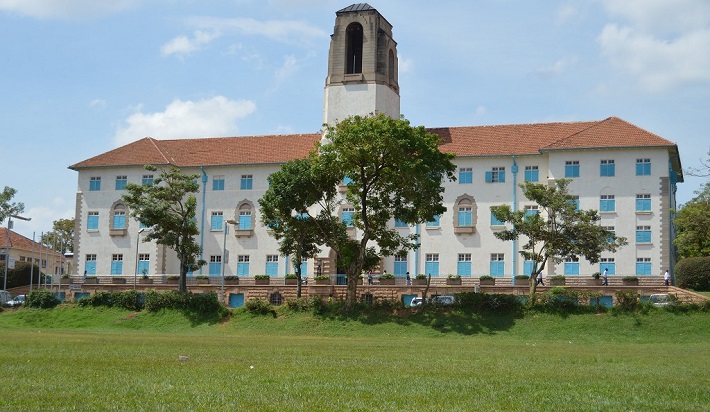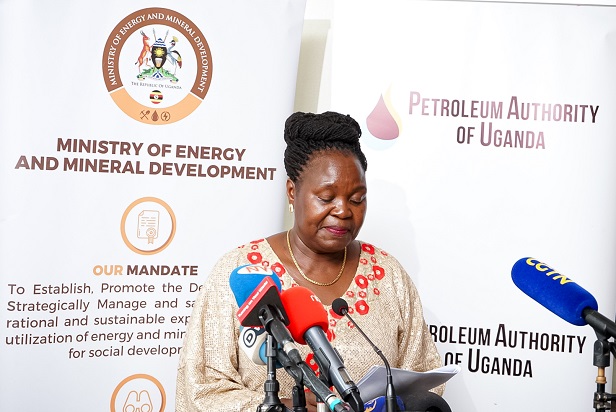The EU Delegation in Uganda will continue engaging the government and the joint venture companies involved in Uganda’s oil and gas industry, despite a resolution against the Construction of the East African Crude Oil Pipeline.
The Pipeline that will transport oil produced from Uganda’s Lake Albert oilfields to Tanzania runs 1,443 kilometres from Kabaale, Hoima district in Uganda to the Chongoleani Peninsula near Tanga Port in Tanzania from where the oil will then be sold onward to world markets.
But the multi-billion Shillings investment has been condemned by the European Parliament on the basis of claims of human rights violations including arbitrary arrests of human rights activists, journalists and leaders of land owners aggrieved over the compensation process, among others. They also claimed that the project is disastrous to the environment and the rivers within its path.
The government and the Joint Venture companies have trashed these claims as greatly inaccurate and based on misinformation. However, the EU Delegation in Uganda says the executive has nothing to do with the resolution that was made by the legislature and sponsored by private members.
Nicolas Gonze, the Head of Governance and Human Rights at the EU Delegation in Kampala says that the delegation will continue engaging the parties in Uganda’s oil industry regarding the preservation of the environment, the ecosystem and respect for human rights during the implementation of the projects.
Gonze told Uganda Radio Network that they are aware of the environmental and human rights concerns as raised by the EU Parliament but that they use dialogue with the government and the companies for adequate redress. According to him, the EU bases its actions and submissions to dialogue, on expert reports including Extractive’s Industry Transparency Reports, which are made by technical representatives from government departments, the Civil Society and Development Partners.
In playing down the resolution of the MPs, a group of civil society organisations in Uganda monitoring the effects of the oil and gas activities on persons and the environment said that the movers of the debate relied on an outdated human rights report of 2018. Since then, a lot has changed as more recent reports have shown.
Speaking on condition of anonymity for fear of countering some of their foreign partners, the group says that on the whole, more than 90 per cent of the civil society in the country is opposed to the resolution, though there are still some genuine concerns regarding the effects of the pipeline project.
However, Francis Elungat, the Coordinator of Oil and Gas at the Ministry of Energy and Mineral Development told a dialogue on transparency in the extractives industry that the resolution is aimed at frustrating the Ugandan oil and gas industry. This, he says, is because the resources are in protected and biodiversity-rich areas and there is no way they can be exploited by operating away from the protected areas.
On their part, TotalEnergies, the lead investor in the oil and gas industry, and the main shareholder in the EACOP company says those opposed to the activities, especially the pipeline, are doing so with little or no knowledge at all.
Faustine Mugisha, the Commercial and Joint Venture Manager at TotalEnergies E&P Uganda says it is the reason the government and the companies should open up access to information, including the details of the agreements signed.
The project will affect 3,648 persons in Uganda with almost three quarters already having signed contracts, and 56 per cent of them compensated. Peter Muliisa, the Head of Legal and Corporate Affairs at the Uganda National Oil Company, one of the Joint Venture members, says the target is to make sure that they are all duly compensated by December.
He also dismissed claims of underpayment saying they are following the prevailing market prices, on top of a disturbance allowance and an additional fee to those for whom payment has been delayed.
“In terms of how much money we are paying, we are considering the market value of the land to date. In addition to the commercial of the land with an additional 30 per cent disturbance allowance. And where we have delayed paying, we are paying an additional 15 per cent uplift a year, where we have delayed,” Muliisa says.
He says that these are over and above what the project should ordinarily pay the affected persons. Those who opted for houses instead of money or land are 210 and the process is on to construct houses for them. Recently, the Minister for Energy and Mineral Development, Ruth Nankabirwa said it is now government policy that no project will take off until all the affected persons have been resettled or compensated.
-URN





